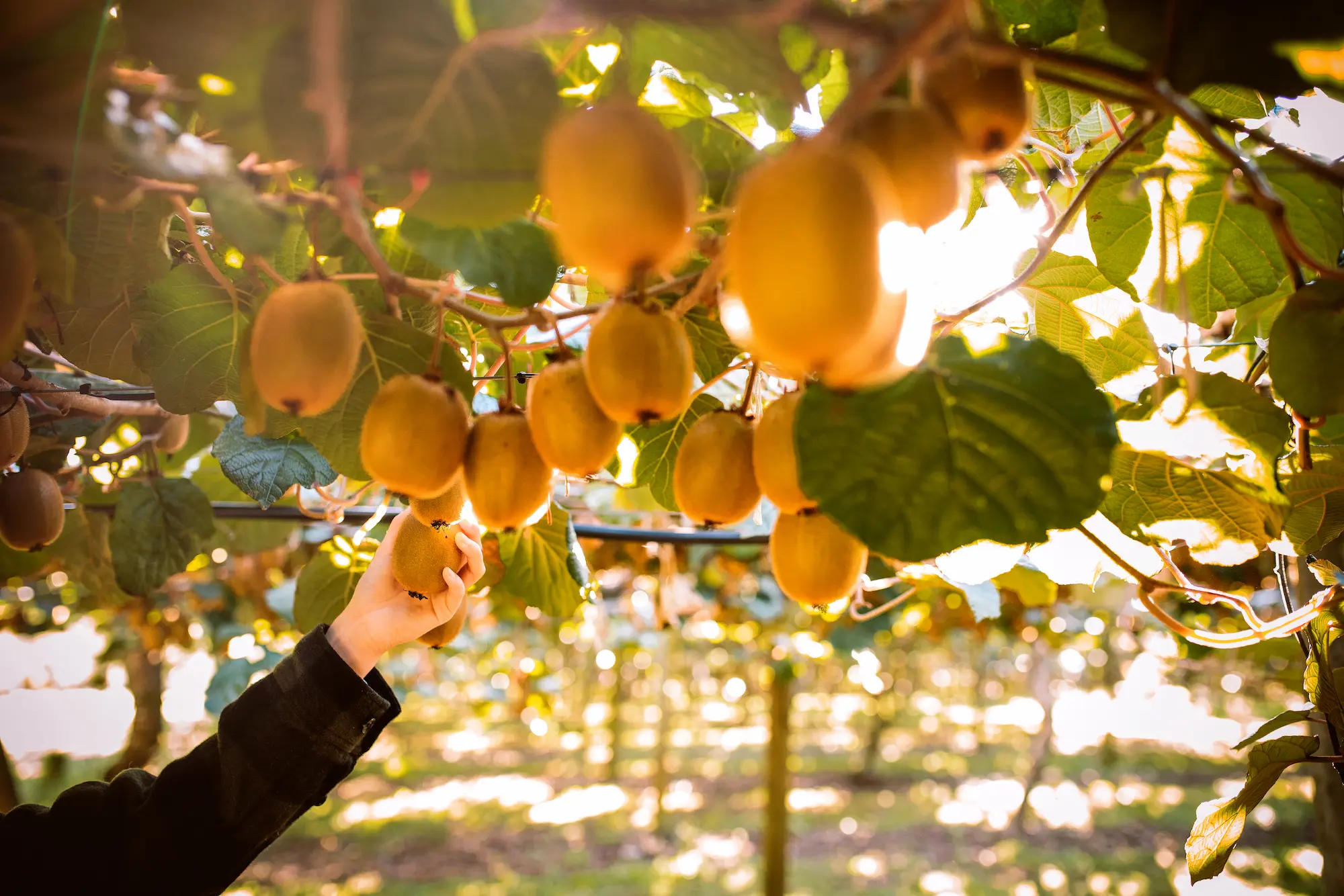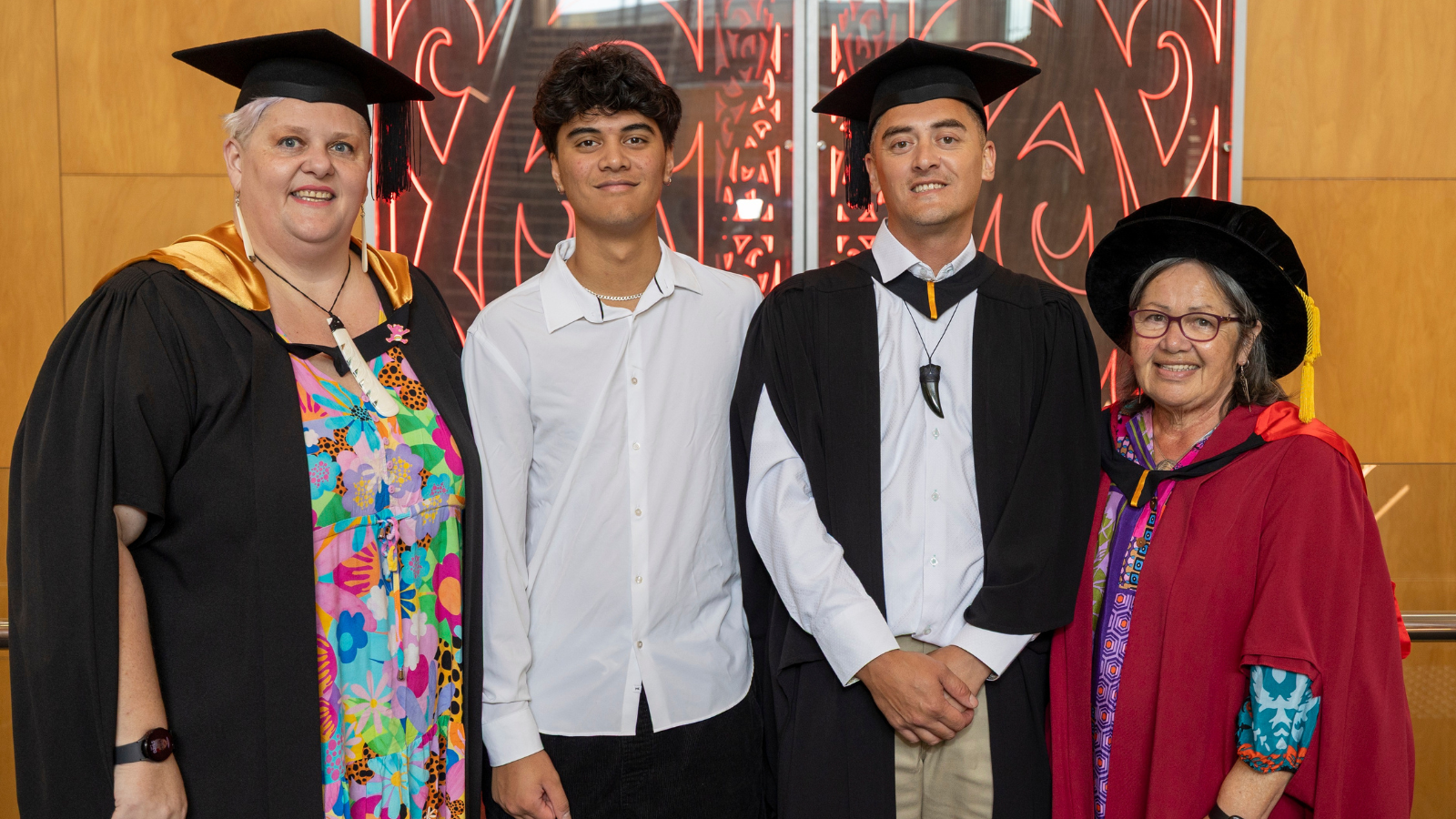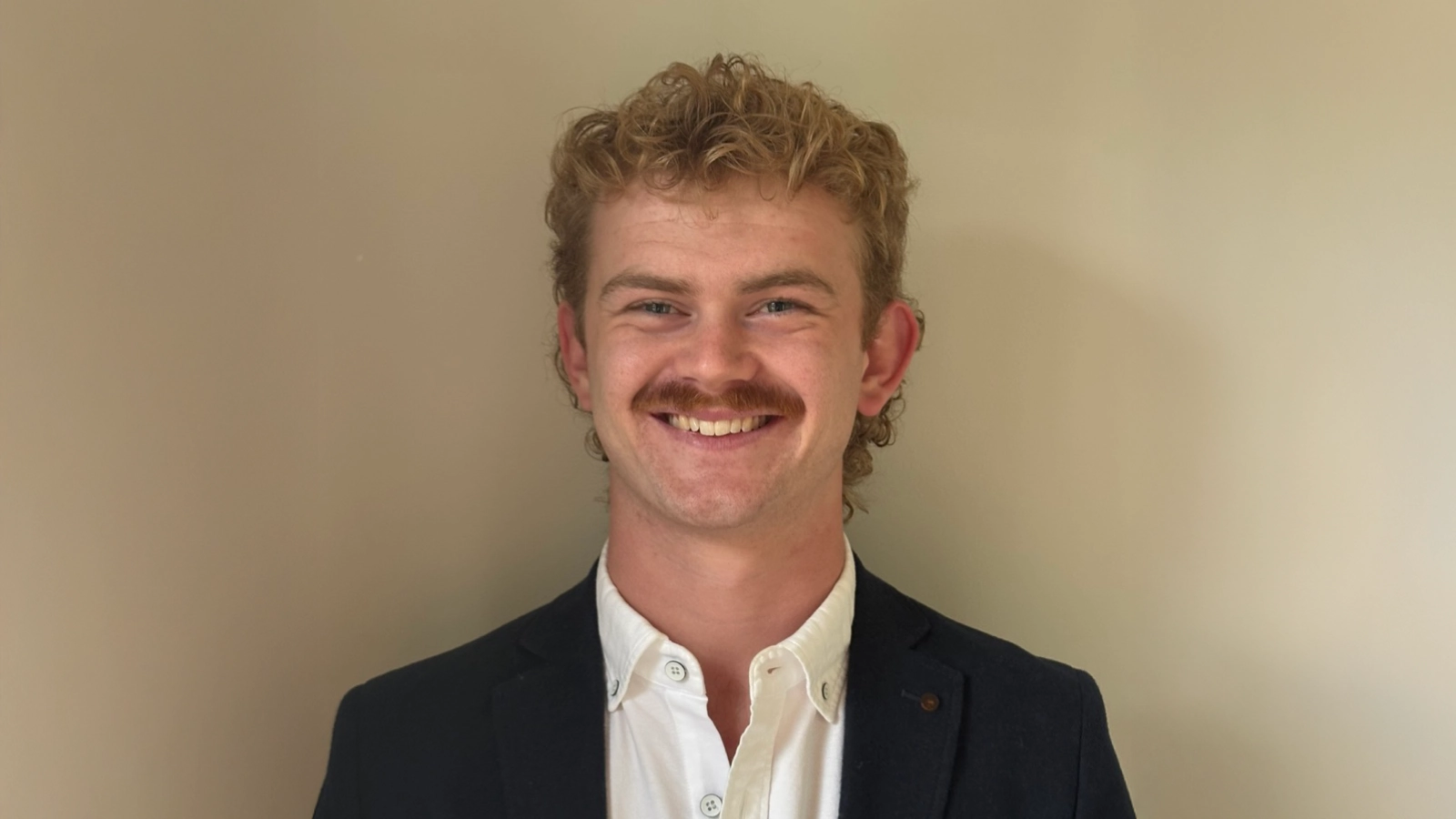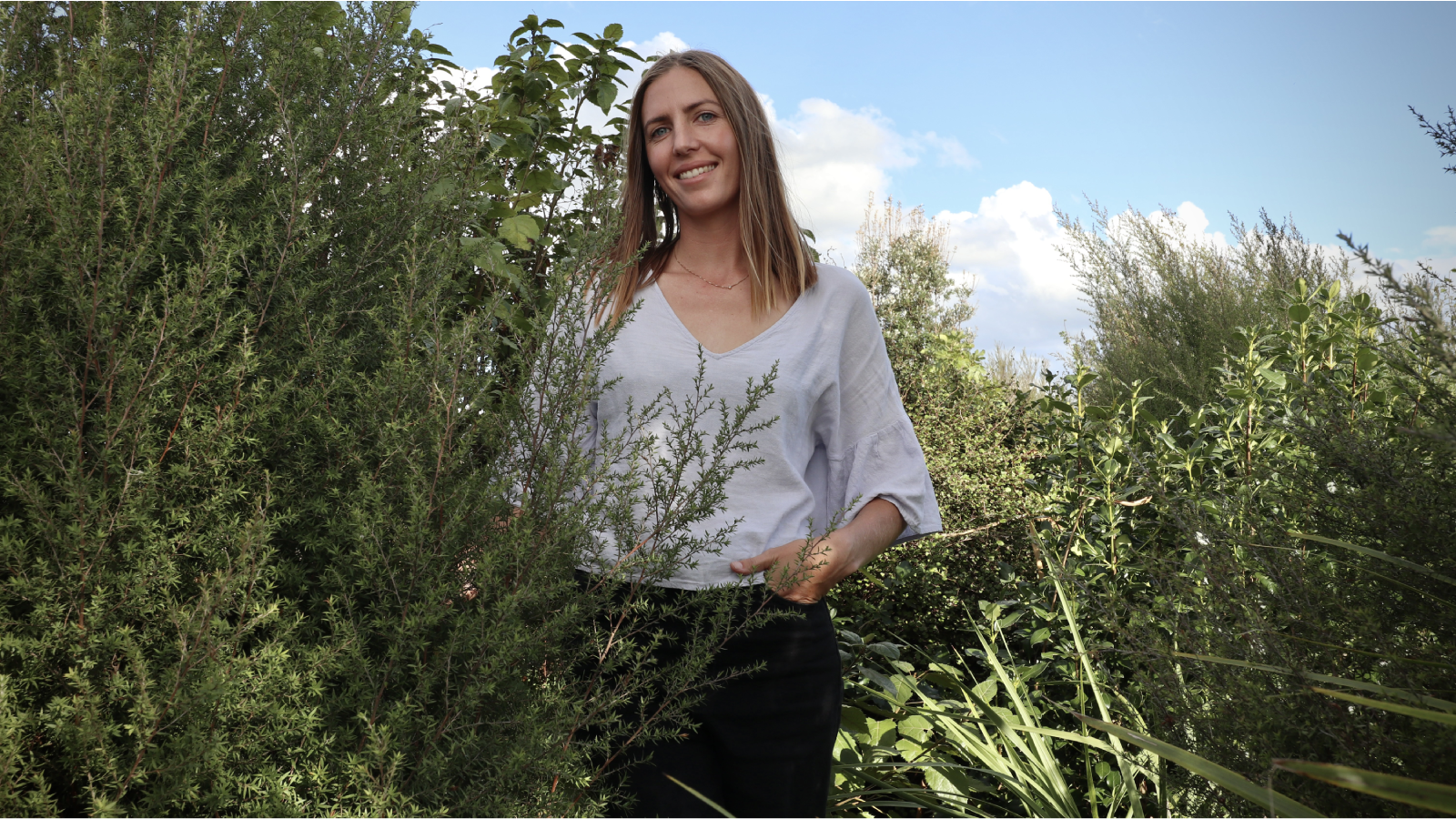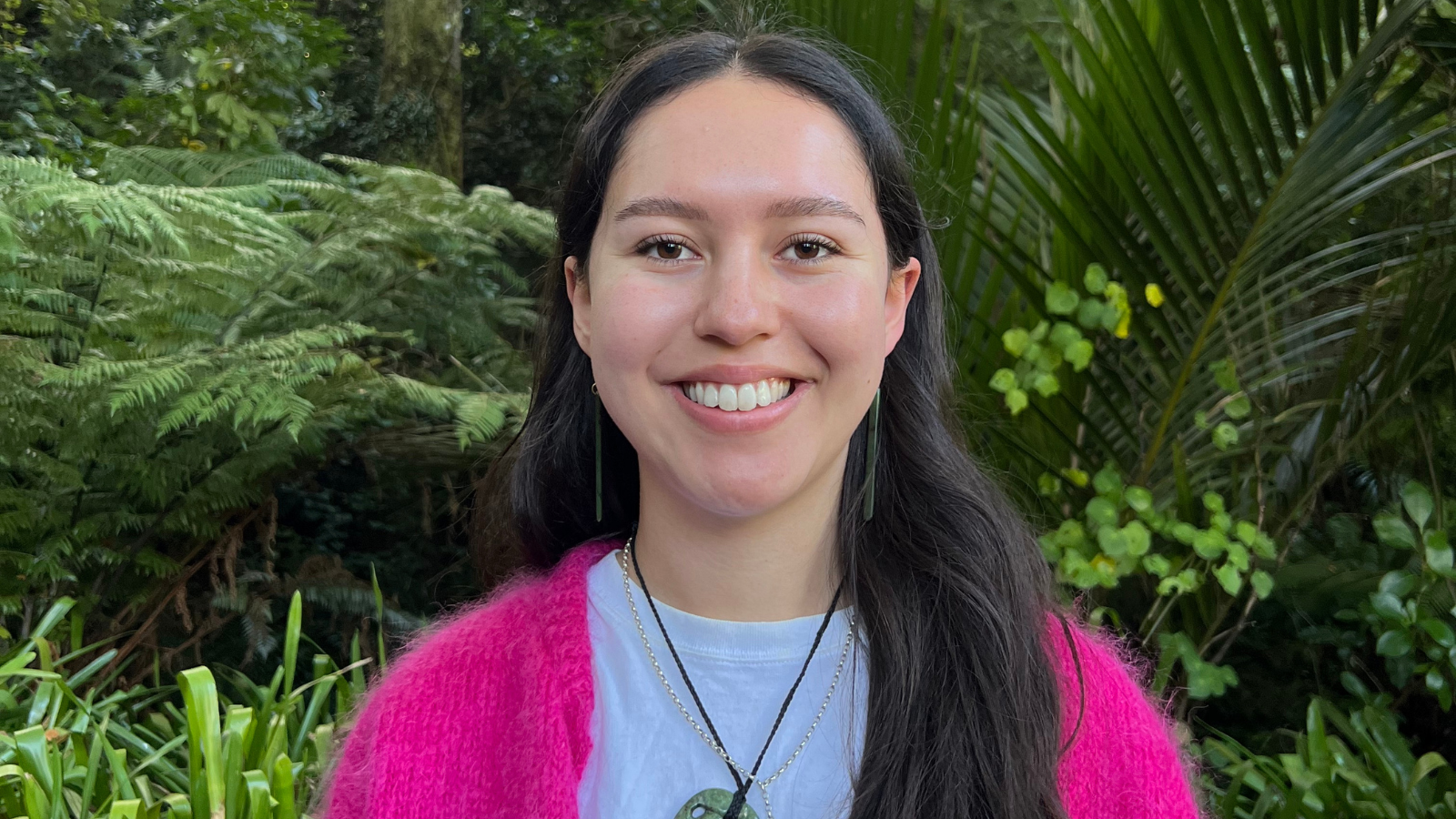The solution to protecting plants from disease and the impacts of climate change could be found within New Zealand seaweed, according to new research from scientists at the University of Waikato and Plant & Food Research.
Dr Marie Magnusson and Dr Christopher Glasson from the University of Waikato, and Plant & Food Research Principal Scientist Dr Joel Vanneste, have been working together to uncover the benefits of sugars in seaweed in protecting our horticulture industry.
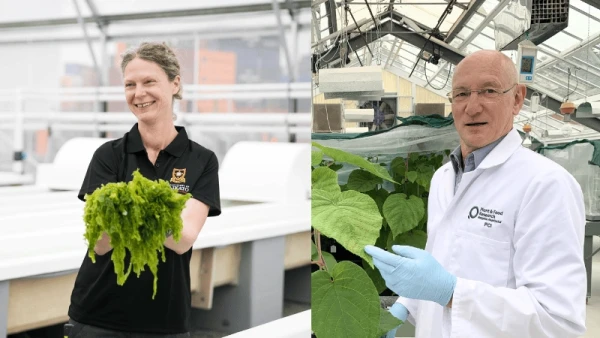
Dr Magnusson from the University of Waikato and Dr Vanneste from Plant & Food Research.
Their research has been awarded a Ministry of Business, Innovation and Employment Endeavour Fund grant in the latest round of funding. The research programme will receive $11.4million over five years, in recognition of its high potential to positively transform New Zealand’s future in areas of value and growth.
The team’s studies have discovered that the sugars in seaweed species from New Zealand act as elicitors in kiwifruit; compounds that trigger plant defence mechanisms. These mechanisms render the plant less susceptible to pathogens such as Psa; a pathogen that has caused huge economic losses to New Zealand’s kiwifruit industry.
Likened to the way humans receive vaccines to prevent themselves from getting sick, the polysaccharides (sugars) found in seaweed are proven to elicit a response in kiwifruit plants that makes them less susceptible to disease and could make them more robust to environmental stress, such as drought, flooding or long periods of high temperatures, which are increasingly likely as the climate changes.
Dr Vanneste says elicitors act like an insurance policy, protecting plants against a threat before it arrives.
“They give growers some peace of mind while not preventing them using any other control methods later in the process,” he adds.
“Priming a plant before stress, such as attack by disease-causing bacteria or times of high environmental change, can reduce the need for other, more costly interventions. Finding a biological elicitor, particularly one that can be used by organic growers, is a game-changer for the horticulture sector.”
Dr Magnusson says that concerns in the industry regarding environmental and health impacts of current management solutions for horticulture was part of the reason she chose to pursue this research path.
“Our goal is to develop high-value, seaweed-derived polysaccharide products into effective, low-impact crop protection products (CPPs) for agriculture and horticulture. By using plant immune system enhancers derived from seaweed, we could guard against multiple types of diseases and reduce the need for synthetic chemicals."
The effectiveness of the products will be tested on kiwifruit, apple and tomato, before expanding to other globally important crops like wheat.
The technology development is integrated with Māori-led research focused on developing a best practice framework for the development of bioproducts from taonga species.
The potential impact of the research project on industry has been acknowledged by Zespri International Limited, the world’s largest marketer of kiwifruit with more than 190 million trays expected to be shipped to more than 50 markets around the world this season.
Zespri Head of Innovation Acceleration Bryan Parkes says the industry is committed to growing fruit in a way that is good for our communities and the environment, and supports the development of low environment impact crop protection products to manage pests and diseases now and into the future.
“Psa had a significant impact on our industry when it was first discovered in 2010 and if successful, the seaweed solution could have a positive impact not only for the kiwifruit industry but also other crop sectors, ultimately improving global market access and export values of the New Zealand primary sector,” says Mr Parkes.
Dr Magnusson, Dr Glasson and Dr Vanneste will work alongside University of Waikato Associate Professor Maui Hudson, Victoria University’s Dr Chelsea Vickers and Dr Philipp Lemke of the University of Munster to pursue further research with the grant from the Endeavour Fund.
A Kāhui Māori (advisory board) will guide the research, drawing on Te Nohonga Kaitiaki Guidelines and Biocultural Labels to enable fairness and benefit sharing.
